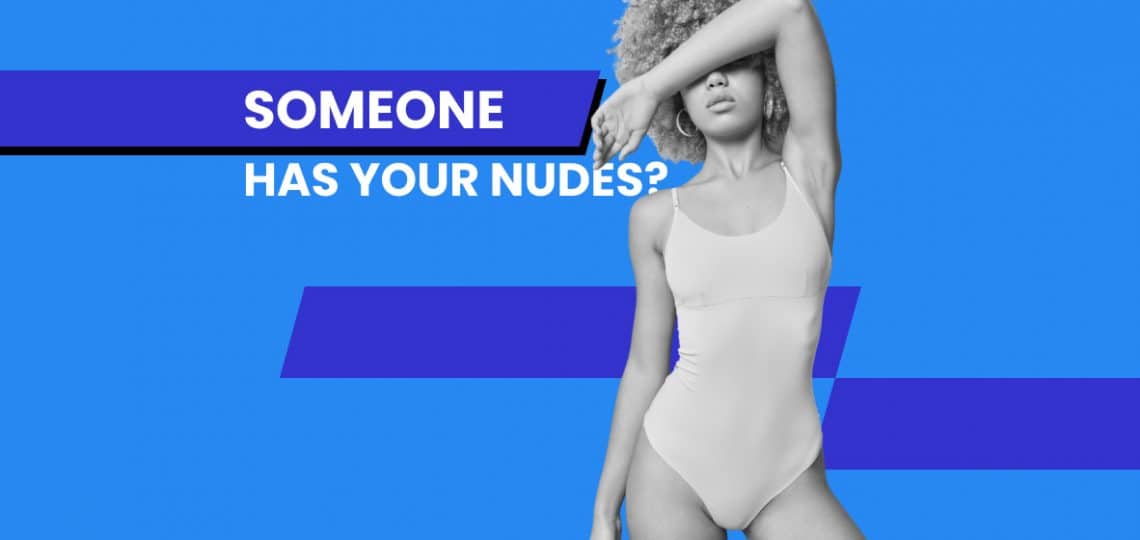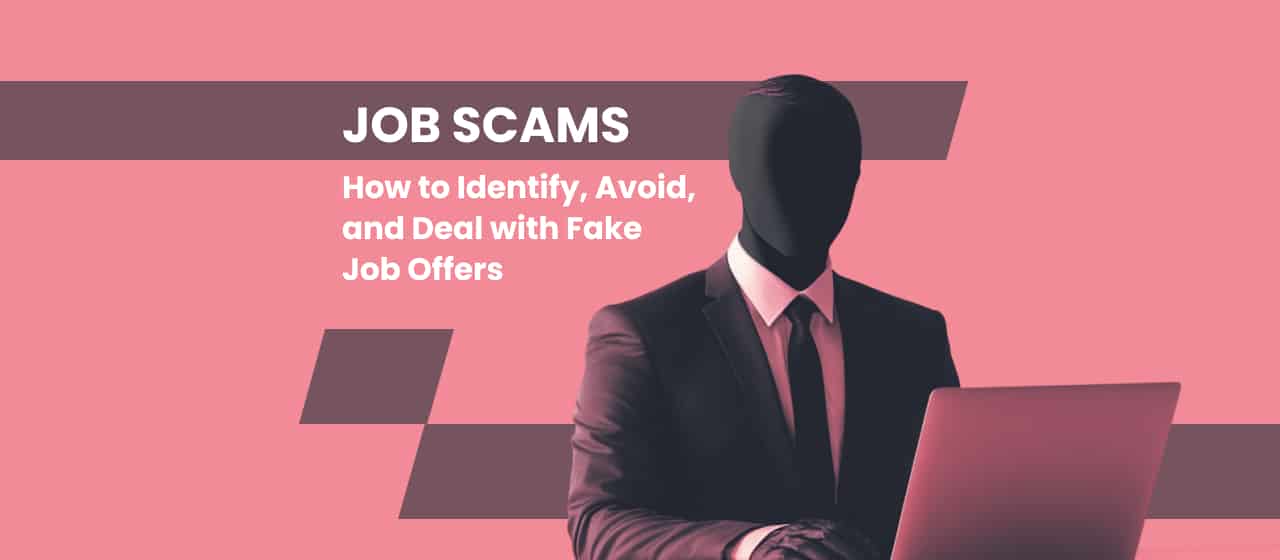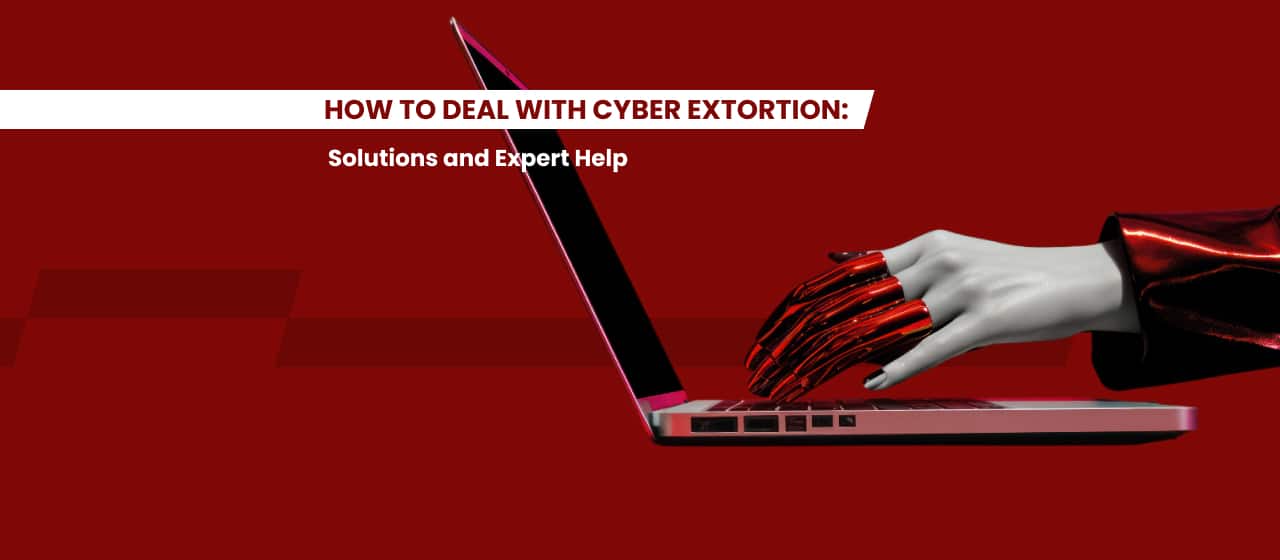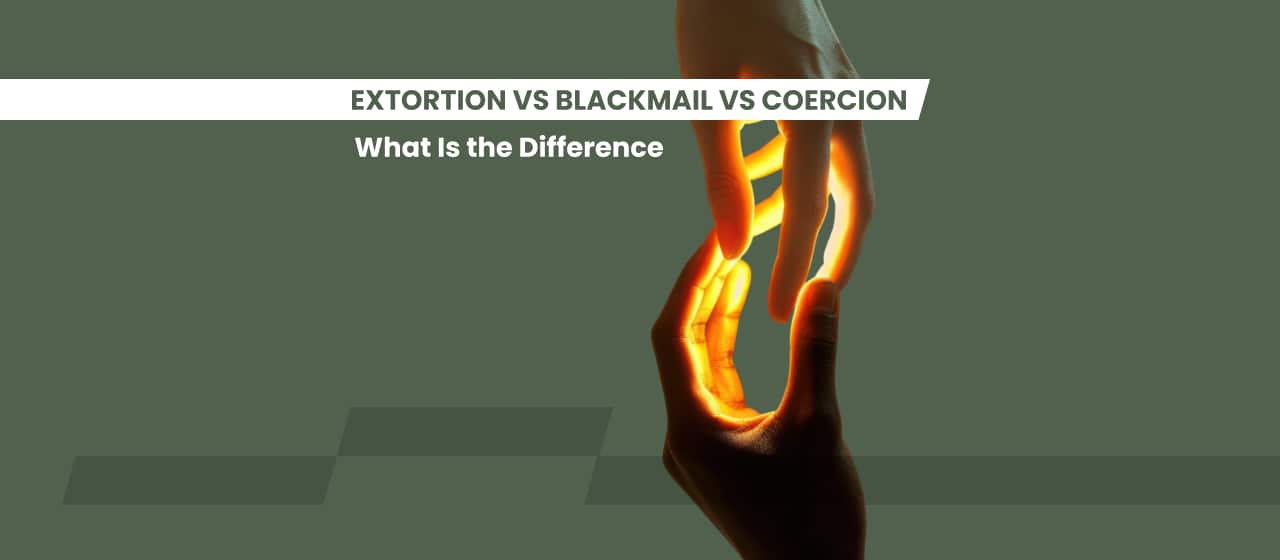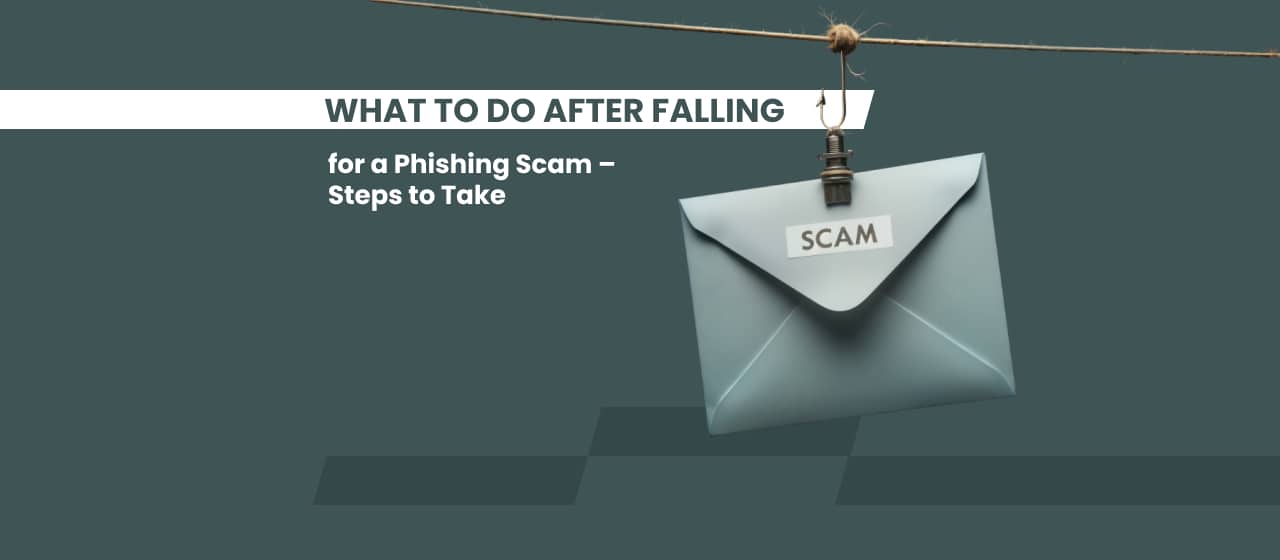A lot of people have sent nudes before. In fact, roughly 88% of U.S. adults have engaged in sexting at some point, with 82% doing so within the last year. Unfortunately, once these images are sent — even to a trusted partner — they become extremely difficult to control. Being left in the dark about the status of your intimate images is a terrifying prospect, but your situation is not hopeless. Continue reading to learn more about what you should do if someone has your nudes in their possession.
How to Respond If Someone Has Your Nudes
When someone has something as sensitive and personal as your nude photos, it can feel like the world is ending. We understand the fear and panic of being put in that position. However, the world is not ending, and you can overcome this situation.
The best way to respond to someone possessing your nudes is to be cool, calm, and collected. That may seem impossible when the outcome is so uncertain, but it’s best to avoid acting on fear and making rash decisions. Allowing anxiety and panic to dictate your course of action can make the situation worse for you down the road.
Signs That Someone Has Your Nudes
Besides the unmistakable sign of someone providing you with proof that they have your intimate photos, there are other signs that someone may have access without your knowledge or consent. Below are some of the indicators that could confirm your suspicion that someone has your nudes.
You Sent Them Consensually
The most obvious sign that someone could have access to your intimate content is if you sent it to them previously. You may have sent it in confidence to a previous partner before a breakup. Or perhaps you got caught up in the heat of the moment during a steamy exchange with an online stranger. Regardless of why you sent the photos — once they reach the recipient, it’s difficult to know if they have saved a copy.
Strange Texts and Emails
If you start receiving strange texts or emails asking for money or other favors in exchange for not releasing your nude photos, it’s a sure sign that someone may have them. In some cases, you may receive messages that reference specific elements from your nude content — including poses, physical features, and specific backgrounds. Contact local law enforcement immediately if your nudes are being used against you.
Unexpected Reactions from Friends or Family
The person who has your intimate content may reach out to your close circle to try to apply pressure and manipulate your actions. If a family member or friend tells you that they are receiving messages from a stranger claiming they have something of yours, it might indicate that someone has your nudes.
Social Media Activity
Keep an eye on your social media accounts for any unusual activity like random mentions of your name, pictures being shared without consent, and group chats being formed. Any unusual activity like this might indicate that someone is trying to spread your private images without permission. If this happens, make sure your friends and family know what’s going on so they can help report the account and their salacious messages and posts.
Unauthorized Device Access
A person may access your nude images by compromising the device that they are stored on. This may be a person who formerly had access to the device or a hacker who circumvented security measures. If you notice unusual activity on your device, such as unrecognized sessions or changes to file configuration, it could be the result of someone infiltrating your device and as a gateway to your nudes.
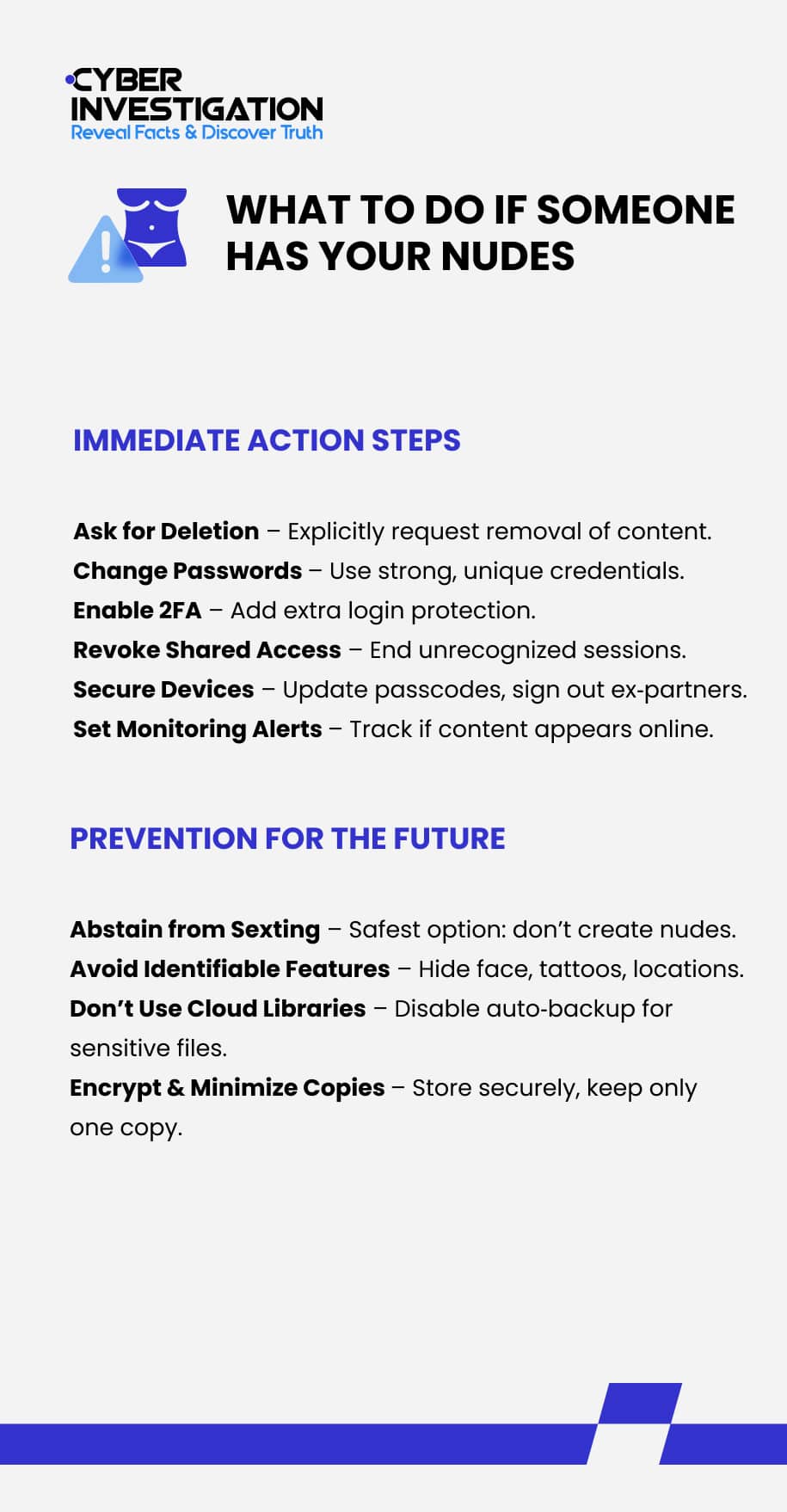
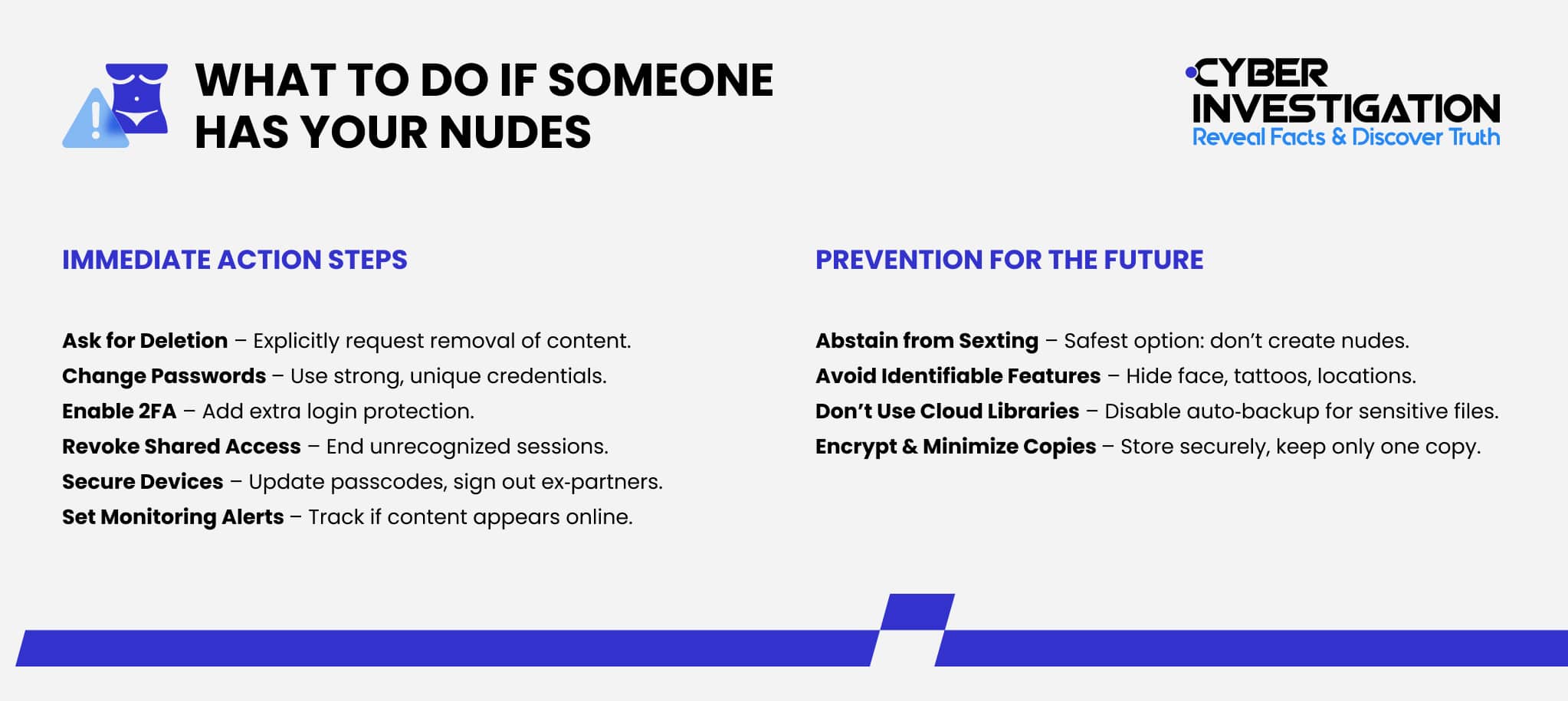
Taking Action: What to Do If Someone Has Your Nudes?
If you’ve determined that someone has your nudes — or suspect that they are — don’t panic. Instead, proceed with the following expert response strategy.
- Ask them to delete it. You may think this effort would be futile, especially if you suspect the person has nefarious motives. However, it’s important to explicitly state that you do not want them to have access to your content.
- Change your passwords. If you believe somebody has your nudes through an account that has them saved, you should update your passwords. It is generally a good practice to update your passwords regularly. Make sure to use strong, unique passwords for each of your online accounts.
- Enable two-factor authentication (2FA). This adds an extra layer of protection that makes sure no one can log in without both your password and a verification code. You should enable 2FA for accounts on any platforms that provide this security measure.
- Revoke access to shared accounts. Go through any online accounts that have shared access with other people. If you see any unrecognized sessions, terminate them and change your password if you haven’t already.
- Secure your devices. It’s not uncommon for romantic partners to share access to common devices. If someone you know — such as an ex-partner — previously had access to your phone or laptop, sign them out and change your passcodes.
- Set up search engine monitoring alerts. This will help you remain aware if your content has been shared anywhere online. By monitoring for release, you allow yourself to act quickly in the event of exposure.
Can You Take Legal Action if Someone Has Your Nudes?
If someone has your nudes but hasn’t used them maliciously, there is not much legal action you can take. While there are laws that protect against nonconsensual distribution of intimate content, it’s not explicitly illegal to possess these images. However, if you were a minor when the images were taken, this would warrant the illegal possession of child sexual abuse material, or CSAM.
If the person who has access to your nudes progresses to either distributing or threatening to distribute the content, there is an avenue for legal action. Most states have laws against nonconsensual intimate image (NCII) abuse, and the TAKE IT DOWN Act makes it illegal at the federal level. Furthermore, you can bring civil charges against the perpetrator for reasons such as damages, infliction of emotional distress, and legal fees.
How to Prevent Access to Your Nudes in the Future
The uncertainty of someone having access to your nudes is likely not an experience you’d like to relive. Fortunately, there are practices you can implement to safeguard your intimate content. Here are some of the steps our experts recommend.
- Abstain from sexting. The most certain way to avoid having somebody access your nudes is not taking them at all.
- Avoid identifiable features. If you do choose to send nude photos, exclude anything that could be used to identify you. This includes your face, unique marks or tattoos, and specific background locations.
- Don’t store nudes in synced cloud libraries. Cloud backups may replicate photos to other devices and servers that have access. Avoid saving intimate content in these libraries or disable automatic backups.
- Encrypt and minimize copies. The safest way to save and store nude images is within encrypted folders and devices. Additionally, it’s best to only save one copy of the content if you choose to keep it.
It’s important to remember that you should not blame yourself for what has happened. You are in the large majority of people who have exchanged nude images in the past. As long as both parties are of age and consenting, there is nothing wrong with participating in this behavior.
However, that doesn’t mean that there aren’t risks involved. By reading this article, you’ve better positioned yourself to make smart decisions with your intimate content to keep it from falling into the wrong hands. And if someone has your nudes and plans to misuse them, you can count on the team at Cyber Investigation Inc. to protect your privacy.
